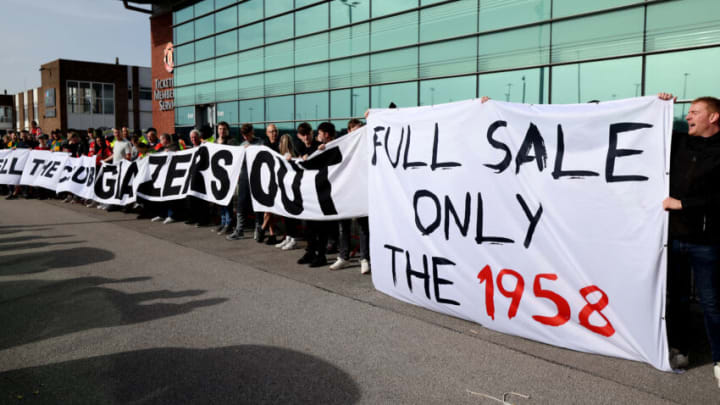Upgrades to the club
In the current fiscal year, Manchester United’s ownership is grappling with discontent from fans, prompting efforts to improve the infrastructure at Old Trafford. However, these measures fall short of the promises made by the club in previous years. Plans include the addition of 2000 rail seats in the Stretford End and enhancements to the WIFI network. Moreover, significant efforts are being made to upgrade the facilities at Carrington, with a new dedicated facility in the works for the Women’s and Academy teams.
Despite these efforts, the total expenditure on these developments accounted for less than 5% of the club’s total revenue in the fiscal year. The capital expenditure, totalling £22.2 million, highlights the scope of the initiatives undertaken to upgrade the club’s facilities, although it underscores the significant disparity between promised improvements and the actual progress made.
(Stats via SEC filings, 2023)
What next for Manchester United?
It is obvious from the above financial statement analysis that the club is completely debt-ridden, and hopes for survival look bleak. The club was fined £300,000 by UEFA for the current financial irregularities while crippling the club’s efficacy to deal in the transfer window.
Manchester United’s accounts state that the Glazers’ ownership of the Class ‘’B’ shares may
— Kieran Maguire (@KieranMaguire) October 28, 2023
‘Delay, defer or prevent change of control’
‘Impede a takeover’
‘Cause club to enter agreements not in best interests of all shareholders’#Glazernomics pic.twitter.com/nFQBlAJBw5
According to the Financial Sustainability Regulations set by UEFA and the Premier League, the “break-even” rule persists, albeit with an extended permissible loss limit of £52 million over a 3-year period, in contrast to the previous cap of £26 million. Moreover, this limit could potentially be raised to £78 million if specific criteria for maintaining good financial health are met. However, with the club’s mounting debt each year, the upcoming transfer window in January might impose significant constraints on Erik ten Hag’s ability to make necessary team adjustments, potentially leading to the club’s underperformance in various competitions, and jeopardizing its long-term sustainability.
Nevertheless, there is room for optimism. A change in ownership, one that prioritizes debt reduction over financial gain, could present a viable solution to the ongoing debt predicament. The critical question remains how the management of the Premier League giants will navigate these challenging circumstances, making strategic decisions that balance the financial health of the club while sustaining its competitive edge in the league.
